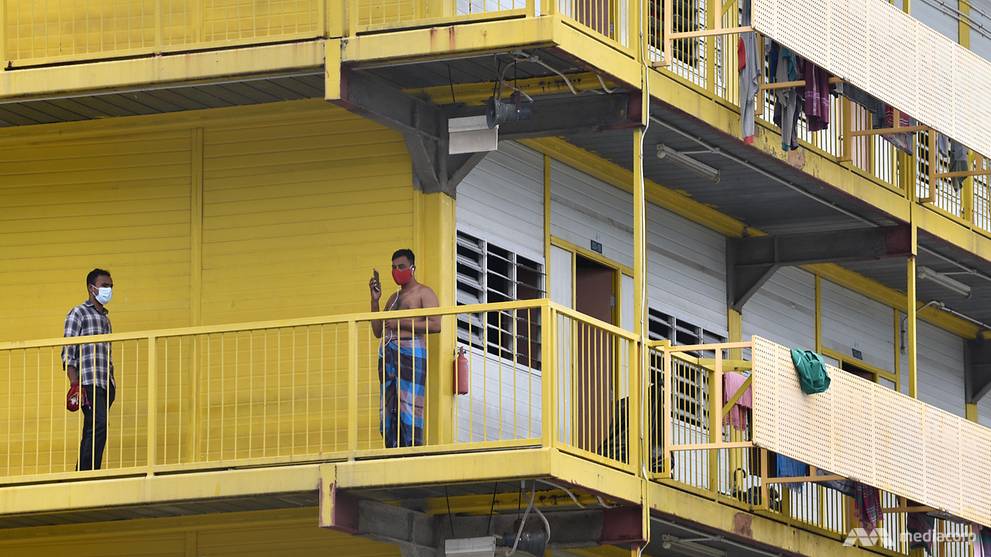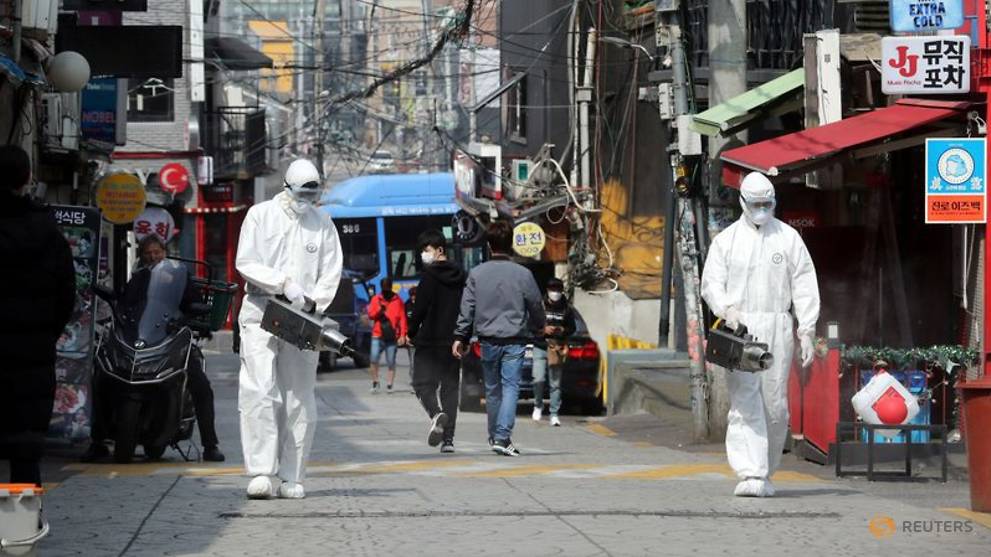
SEOUL (BLOOMBERG, AFP) - South Korea's capital city of Seoul announced on Tuesday (May 12) that its nightclub cluster of coronavirus cases had risen to 101, up from 86 the previous day.
The "come forward, get tested" strategy that has helped the country contain its Covid-19 outbreak has run into an obstacle: its longstanding homophobia.
In South Korea's latest outbreak linked to clubs, several of them frequented by gay customers, health officials are trying to track more than 5,500 people who visited the bars between April 24 and May 6. But more than half remain out of reach, while the infections tied to the bars continue to rise.
Officials in the East Asian nation of 52 million announced 27 new cases Tuesday, taking its total to 10,936, after recording only single-digit increases for eight of the preceding 13 days – many of them overseas arrivals.
As of noon Tuesday, 102 cases had been linked to the Itaewon cluster, the Korea Centres for Disease Control and Prevention said, up 16 in 24 hours, and the vast majority were men in their 20s and 30s.
The city secured a list of 10,905 people who visited the district through data provided by mobile operators and has sent text messages asking them to get tested, he said.
“The National Police Agency has established an operation system with 8,559 officers... to track down who cannot be identified through credit card information or data provided by mobile operators,” said Mr Yoon Tae-ho, director of the Korea Disaster Management Headquarters, adding that thousands of police would be deployed to track them down.
More than 7,000 people who have visited the area over the past two weeks have been tested, said Mayor Park – who on Monday announced a 2 million won (S$2,310) fine for those who avoid testing.
BIGGEST THREAT
The latest spread poses the biggest threat yet to the Asian nation's success in curbing its epidemic through rapid and widespread testing. Instead of imposing strict restrictions on people's movement and business activity, South Korea has relied on its testing programme, which allowed officials to identify and isolate those infected before they can spread the pathogen to others.
The strategy relied on people's willingness to get tested and volunteer personal information, and for months, it has worked. From late April until the most recent outbreak, Seoul saw the number of new daily cases drop to one or two, and sometimes zero.
There are signs that infection linked to the clubs has already spread widely and so may be more challenging to stamp out. Of the 101 infected people confirmed so far, 64 live in Seoul, while others live in nearby cities like Gyeonggi and Incheon.
"South Korea's quarantine system is now facing a challenge after the group infection from the Itaewon clubs," public health policy director-general Yoon Tae-ho from the Health Ministry said at a briefing on Tuesday. The country tested 12,000 people Monday, up from a daily average of about 5,000, he said.
The latest flare-up has emerged among a crowd of people who may not want to be identified. Gay people have few legal protections in the country. According to a 2017 Gallup poll, 58 per cent of South Koreans are against same-sex marriage, including the President, who made his opposition a part of his campaign.
DISCRIMINATION
After the South Korean government revealed in its push alerts the names of the bars that a coronavirus-positive patient had visited, anti-gay comments accumulated on the Facebook page of Seoul-based King Club.
"There is a considerable level of discrimination and hostility against homosexuality," said Daekyeung University professor Kwak Hye-weon, co-author of a 2019 study on the effects of homophobia on the nation's health system.
"That makes potential victims of the infection more likely to stay in the dark, rather than voluntarily come forward for testing."
Prof Kwak also noted that club-goers might pay in cash in order to stay anonymous, making it hard to trace them through financial transactions.
"Sexual minorities in Korea are at risk of losing their family, friends, jobs, careers and life when they are outed," gay activist Heezy Yang wrote on Twitter. "When there is no stigmatising and hatred towards patients who are also victims of the virus, people will step forward, get tested and eventually be able to keep others safe."
KCDC vice-director Kwon Joon-wook said "prejudice and discrimination" only impede prevention activities, urging the public not to blame virus patients.
The country's drive-through testing sites may help. In late February, when a cluster of cases broke out in Daegu city tied to a religious sect, health officials encouraged people worried about stigma to get tested that way, said epidemiologist Ki Moran from the National Cancer Centre.
"I think they should do the same this time to avoid the worst and help potential patients get tested out of public sight," she said.
Health officials have promised that they will not ask for or reveal too much personal information if people come forward. Victims "don't need to specify the club they visited", said the Health Ministry's Mr Yoon.
"Just tell us you were in the same district and want to be tested, for free...
"A day's hesitation would cost the entire community an entire month before returning to normal daily life," he added.
https://news.google.com/__i/rss/rd/articles/CBMif2h0dHBzOi8vd3d3LnN0cmFpdHN0aW1lcy5jb20vYXNpYS9lYXN0LWFzaWEvaG9tb3Bob2JpYS1wb3Nlcy1vYnN0YWNsZS10by1zb3V0aC1rb3JlYXMtY29yb25hdmlydXMtc3RyYXRlZ3ktYXMtbmlnaHRjbHViLWNsdXN0ZXLSAQA?oc=5
2020-05-12 11:35:12Z
52780772959981


